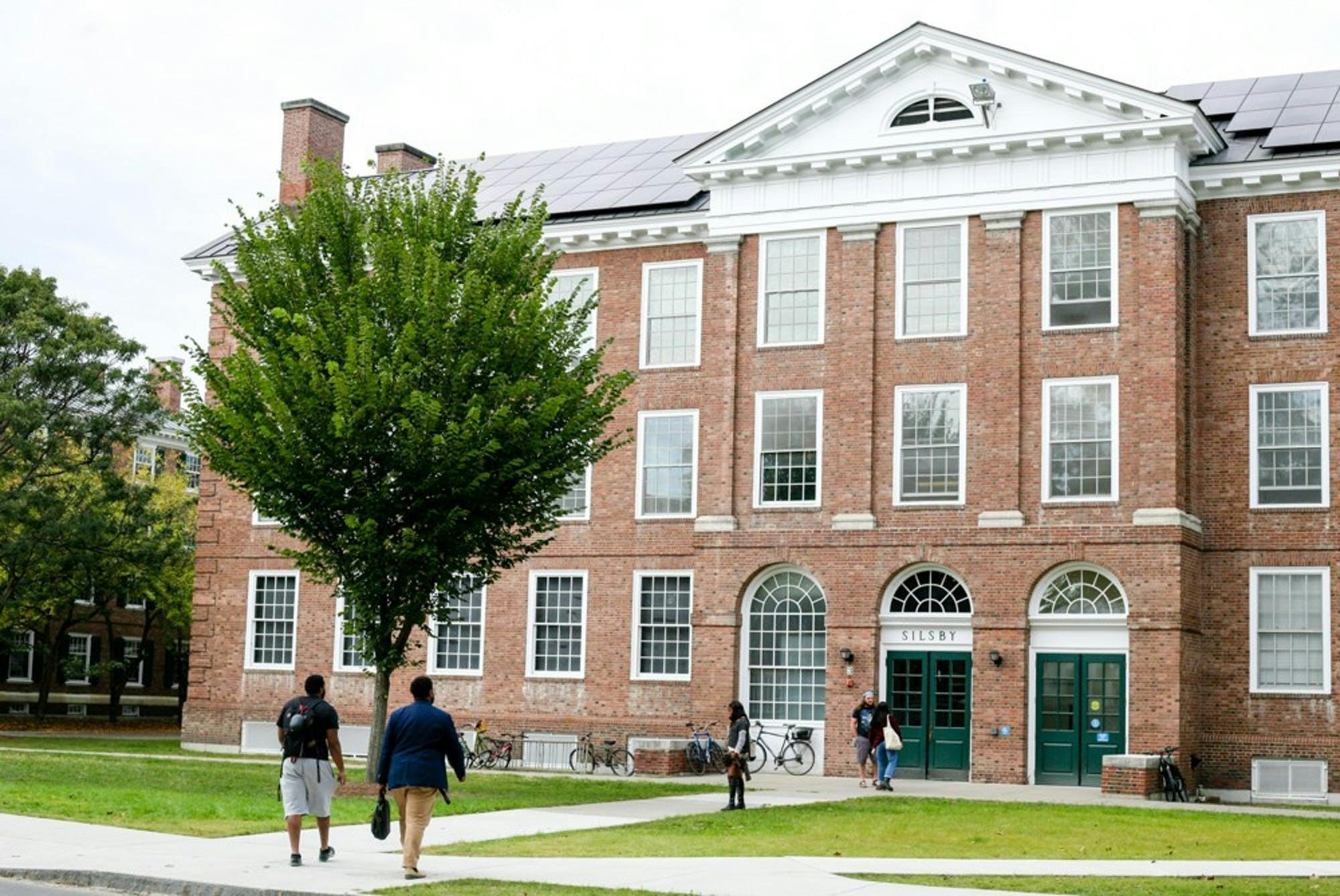During the 2019 celebration of Dartmouth’s 250th anniversary, anthropology professor Jesse Casana proposed a project to — quite literally — unearth some of the College’s rich history.
Casana felt inspired to investigate Dartmouth’s subterra after observing some not-very-archaeological excavation of the lawn outside his office in Silsby Hall. He noticed that as crews were digging trenches to lay pipes for the new Irving Institute, they had unwittingly unearthed the remains of the foundation of an 1850s-era household.
“I just wanted, first of all, people to know that Dartmouth has a very long history going back to the 1760s when it was first settled by Euro-Americans, but also longer than that before — there's been people here for 10,000 years,” Casana said.
In the spring of 2019, Casana enlisted students, faculty and community members to participate in a project that came to be known as “Digging Dartmouth.”
The project was a success: Casana and those involved excavated and inspected a small site on the western front lawn of Baker-Berry Library. The two-by-two meter site was the previous location of the privy (bathroom) of Ripley cottage, constructed by Sylvanus Ripley in 1786.
During the 2019 dig, Casana and his team found items ranging from a rubber comb and champagne bottles to monocles and ivory teeth. They also found items that began to tell a story of the women and children who had lived in the cottage over the years, such as children’s toys and hair styling tools dating back to the early 19th century.
Thrilled by the success of “Digging Dartmouth,” Casana planned to teach a hands-on archeological class to further explore Dartmouth’s past in 2020. The pandemic derailed this plan, and it wasn’t until this Spring that his new class, ANTH 50.47, "Field Methods of Archaeology," made its debut.
The class is uniquely based on applying archaeological methods in the real world. According to Jonathan Alperstein, the class’s teaching assistant, only one day per week is lecture, while Thursdays are reserved for fieldwork.
Last week, for example, the class visited the Trescott reservoir sites — an “area that used to house Hanover’s poor farm, where the homeless, mentally ill and anyone the town didn’t like would live,” Alperstein said. With depressions from the abandoned houses still present, he called the site “a cool time capsule, because no one has been living there in over a hundred years.”
The class’s assignments aren’t typical, either. For homework, students have created maps documenting different sites and artifacts from their own surveys, as well as other assignments using resources like Google Earth to envision promising dig sites.
Anthropology major Julia King ’23 has had some experience doing fieldwork elsewhere, but she said this class is her first hands-on experience in the field while at Dartmouth.
“On a personal level, I love the fieldwork part. That’s why my focus is archaeology,” King said.
Despite the involvement in high-level fieldwork, the class is not overly exclusive: King said that out of a class of 16, only four students were upperclassmen studying anthropology and no prerequisite courses were required. Decker Jackson ’25 is one of the class’s younger students; having taken a class with Casana during freshman fall, he was eager to join the professor’s spring offering.
“I didn’t have the chance to take any archaeology classes in high school because it’s not offered, but here I jumped on it in the fall,” Jackson said. “ I loved it. I was like ‘this archaeology anthropology thing is really cool and I need to do more of this’ … and here we are, we are sort of his guinea pigs in this class, since this is the first time he’s taught it on campus.”
The culminating experience of the class is particularly special — much like Casana’s original 2019 dig, students will collaborate to choose a dig site of their own. King recalled being shocked at the level of student independence on this project.
“I didn’t expect having any say in this process,” she said. “Normally you don’t have any say in this sort of thing until postdoc.”
The class has already explored several potential site options. King highlighted the site in front of Silsby Hall — but she noted that it was impacted by the construction of new steam lines for the Irving Institute.
The class has also considered looking into the site of Payne’s Tavern in front of present-day Fairchild Hall, but obstacles like the lawn’s public sculpture pose a barrier to excavation. Other potential sites on campus include the backyard of the Chinese language house and a plot on the property of the Sphinx Tomb.
Alperstein emphasized the class’s importance in understanding the Upper Valley through methods “besides the few privileged wealthier men who wrote down Dartmouth’s history.”
The archaeological sites, he said, give accounts of “women and children and people of color living here” and “stories that weren’t written down.”
Casana also expressed his hope that archaeology could offer insight into Dartmouth and Hanover’s history beyond what — and who — was written about in John King Lord’s “History of Dartmouth,” which was published in 1928. He added that “archeology gives us … a window into everybody else.”
Beyond the cultural value of the class, it represents a major step forward for Dartmouth itself. Alperstein said that Dartmouth has “a low level of archaeology” compared to other peer institutions and added that this class is an important step by Professor Casana in bringing Dartmouth to the forefront.
Professor Casana’s archaeology class allows his students to choose their own site, but all of campus can get involved in the actual digging. As King said in a testament to the class’s attempt to open up the field of archaeology, “anyone can reach out and come see what it’s like for a couple hours.”
When they start digging, perhaps it will be some lucky passerby’s chance to discover a 19th-century monocle, a gold ring or a pair of false ivory teeth.




